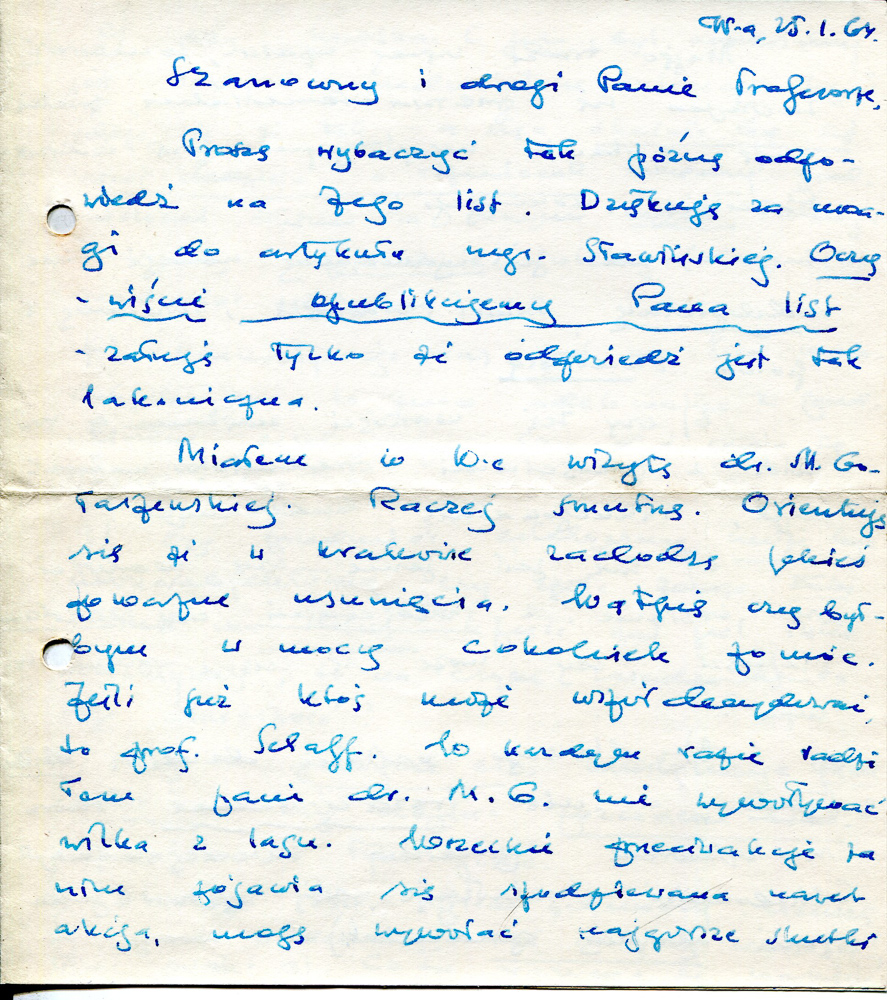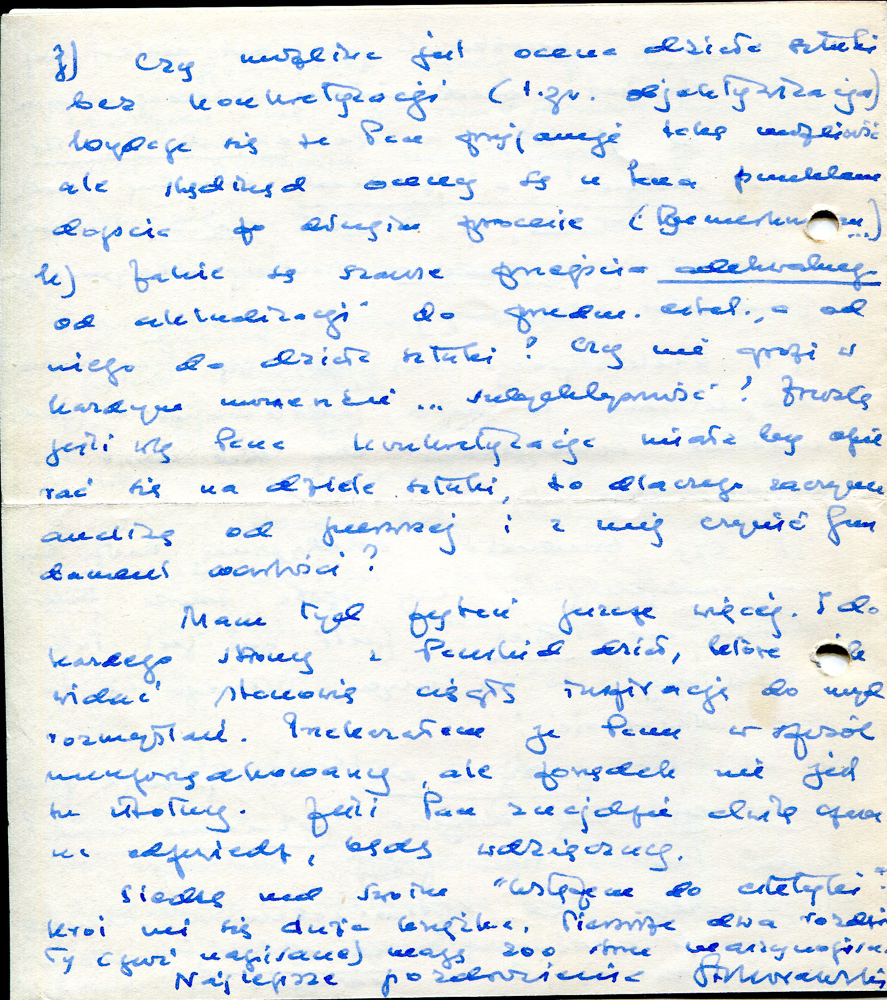



Letter from Stefan Morawski written 25.01.1964
Warsaw, 1/25/1964
n Dear and Honorable Professor,
n Please forgive such a late reply to your letter. Thank you for the comments on the article by Ms. Slawinska, M.A. Of course, we will publish your letter – I only regret that the answer is so brief.
n I got a visit by M. Gołaszewska, PhD, here in Warsaw. She seemed rather sad. I am aware that some more dismissals are taking place in Krakow. I doubt I could help anything. If anyone has any decisive role, it would be prof. Schaff. In any case, I advised M.G., to let sleeping dogs lie. Any opposition before the expected action occurs can have the worst effects
n As I have a little more time, since the semester break is beginning, I am sending you some substantive questions regarding your concept:
n a) it is unclear whether you recognize a separate world of values related to the field of culture
n b) are values also related to the qualities of natural objects, built intentionally?
n c) it is not clear if values are the same as qualities or quality complexes, or are they something else entirely?
n d) why the given values are objective and not relational, if they are the product of intentional processes (consciousness shapes its product as a quasi-separate object)?
n e) is a book (as a material being) also an intentional object? It seems so, and so one would like to know more about the differences between such and other, purely intentional and similarly intentional objects (e.g. aesthetic object).
n f) concretization is, according to you, monosubjective in one place, then agajn adequate with the aesthetic object in another. Are both versions acceptable?
n g) can an aesthetic object be monosubjective, or does it always have such a status? If it is intersubjective, in turn, then what is its property based on?
n h) is this aesth. experience constituted by the subject or only by aesth. cognizance? The way you wrote about it varied.
n i) Why does the reporting judgment, which concludes the research process, not apply to values?!, cf. point c). What is referred to as value here?
n j) is it possible to evaluate a work of art without concretization (so-called objectification), it seems that you accept this possibility, but otherwise the evaluations are an example of reaching a conclusion after a long process (XXX)
n k) What are the chances of an adequate transition from actualization to an aesth. object, and then to a work of art? Is it not prone at all stages to the danger of … subjectivity? So if your concretization were to be based on a work of art, why then start the analysis from the first and make it the foundation of value?
n I have even more such questions. And to each page of your works, which, as you can see, are a constant inspiration for my reflections. I am giving them to you in a disorderly manner, but order is not important here. If you find some time to answer, I will be grateful.
n I’m working on my “Introduction to Aesthetics”. It is going to be a big book. The first two chapters (already written) make up 200 pages of typescript.
Best regards
n StMorawski
